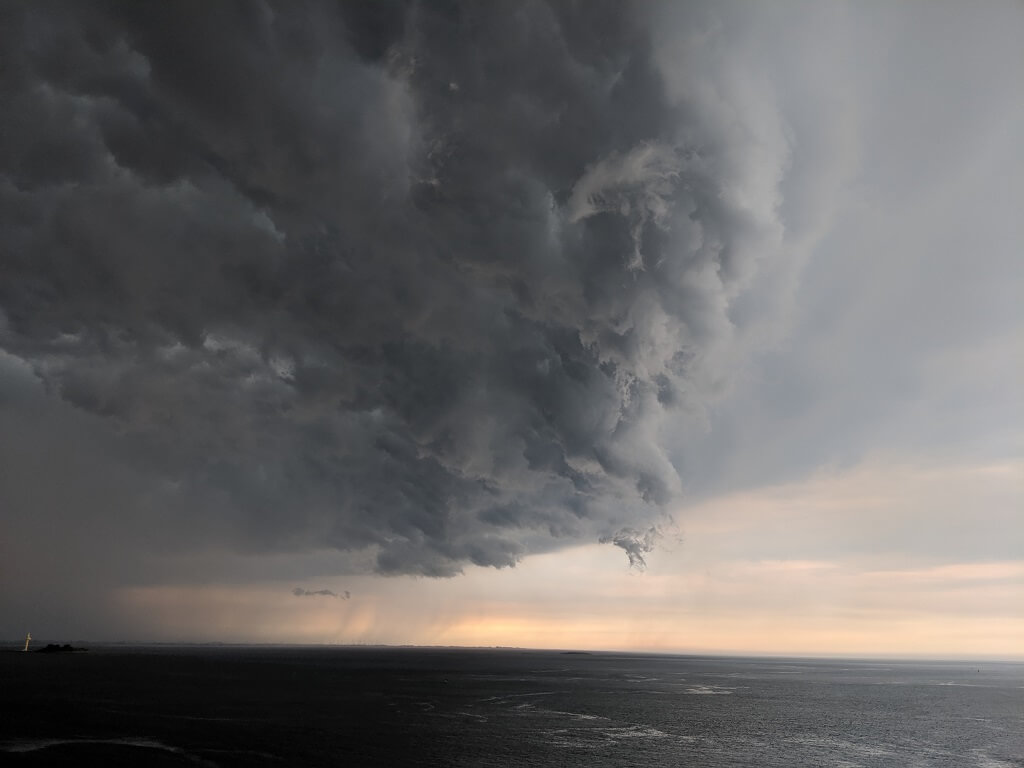What Is a Hurricane?
Hurricanes are large, swirling storms that produce winds. Usually, the winds have at least 119 kilometers per hour (74 mph) of speed. Although cheetahs are the fastest animals on earth, hurricanes beat their speed. Therefore, winds from hurricanes cause severe damages to buildings and trees.
Hurricanes form over warm ocean water. Nevertheless, they still strike land sometimes, and when they do, they push a wall of ocean water ashore. The wall of water ashore is also known as a storm surge. Due to the heavy rain and storm surge that accompanies a hurricane, it can cause floods.
Categories Of Hurricane
Hurricanes have five different categories, and they differ in speed. The first category of hurricanes is faster than a cheetah, and it produces winds with speeds between 119 and 153 km/hr (74-95 mph). The second category hurricanes move at speeds between 154 and 177 km/hr (96 -110 mph), equal to or greater than a baseball pitcher's fastball.
Hurricanes in the third category have speeds close to the serving speed of professional tennis players. The winds in this category are between 178 and 208 km/hr (111-129 mph). Fourth category hurricanes are faster than the world’s fastest rollercoaster at speeds between 209 and 251 km/hr (130-156 mph).
How Do Hurricanes Get Their Names?
The phonetic alphabet was used to identify the North Atlantic Ocean's tropical cyclones between 1950 and 1952. However, the US Weather Bureau adopted women's names in 1953. Eventually, the rest of the world adopted the naming system, with the World Meteorological Organization gaining naming rights. The organization names hurricanes based on the part of the world the storm occurs. Until 1979, only women names were used to name hurricanes around the US. During this period, the naming system was decided to alternate a list that included men's names. Therefore, six different name lists alternate every year. A hurricane's name is retired and replaced if it does significant damage.
Are Hurricanes Different From Typhoons?
The only difference between hurricanes and Typhoons is geography. Several of the world's oceans experience tropical storms. Although these storms are the same, they differ in name. Storms in the Atlantic ocean, the eastern pacific ocean, the Gulf of Mexico are called hurricanes. Typhoons are storms occurring in the western pacific ocean, while storms in the Indian Ocean, Australia, and the Bay of Bengal are called cyclones.
What Is The Effect Of A Hurricane On Water Supply?
Hurricanes occurring with a tidal surge or flooding can contaminate the public water supply, and this contaminated water supply can cause illnesses when consumed. Therefore, people in hurricane-affected areas shouldn't assume the water is safe for drinking. Some water treatment plants in areas hit by tropical storms or hurricanes may not operate.
Storm damage and flooding can contaminate water lines if they are in operation. It is advisable to listen to public announcements regarding public water supply safety. You should get your well tested and disinfected if it gets flooded; the test and disinfection should be done after the storm passes and the floodwaters leave. If you have any questions about testing, you should direct them to your local or state health department.
How Can You Stay Safe After A Hurricane?
Steer Clear Of Damaged Buildings
Hurricanes can damage buildings, making them unsafe. Therefore, you should avoid damaged buildings till local authorities say it is safe.
Strange noises could mean that a building is about to fall. If you hear shifting or unusual noises, you should leave your home or building.
Eat Safe Food And Drink Safe Water
Food that may have come in contact with flood or storm water is unsafe, so you should throw it away. Unsafe food may still look, smell, and taste normal, but it can make you sick. Furthermore, your perishable foods may not refrigerate properly; therefore, you should throw them away. You should also discard foods with a usual color, odor, or texture. If you're in doubt about food safety, you should throw it out.
It is best to always listen to reports from local officials, especially advice on water precautions in the home. Avoid using water you have been told or suspect to be contaminated; this includes making ice, brushing your teeth, making baby formula, washing your hands, washing and preparing food, or washing dishes.
Water safe for cooking, drinking, and personal hygiene should be bottled, treated, or boiled. You can get specific recommendations on boiling or treating water in your area from the health department in your state, tribe, locality, or territory.
Learn more to know how to get safe food and water supply.
Stay Away From Your Home Till Its Safe
After evacuating your home during a hurricane, it is understandable that you want to get back to see the extent of damage and get back to your daily life. However, returning home is not easy, and it is also unsafe.
Conclusion
Hurricanes damage buildings, the natural environment, and our homes. Not only that, but they also contaminate local utilities. You can protect yourself and your family when hurricanes happen by knowing about them in advance.



